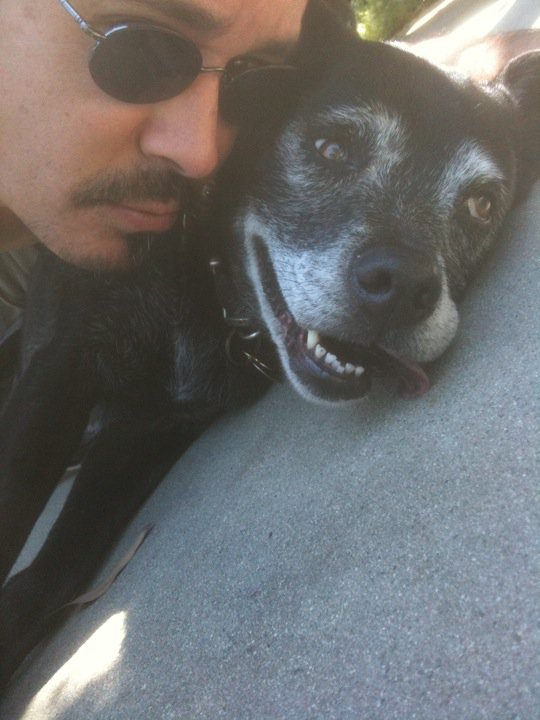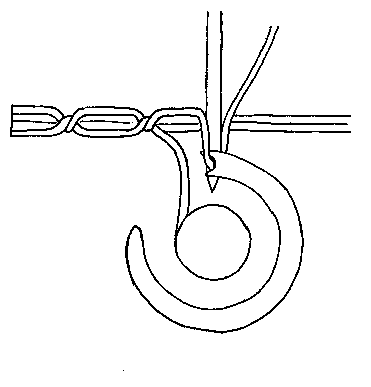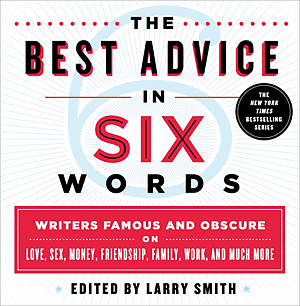
From Reader’s Digest via Yifat by way of M,
The Reader’s Digest Version of all those confusing words and seemingly random rules you missed in English class
You never mean: Could care lessYou always mean: Couldn’t care less
Why: You want to say you care so little already that you couldn’t possibly care any less. When the Boston Celtics’ Ray Allen said, “God could care less whether I can shoot a jump shot,” we know he meant exactly the opposite because 1) God has other things on his mind, and 2) God is a Knicks fan.
You might say: Mano a manoYou might mean: Man-to-man
Why: You don’t speak Spanish by adding vowels to the end of English words, as a columnist describing father–teenage son relationships seemed to think when he wrote, “Don’t expect long, mano a mano talks.” Mano a mano (literally, “hand to hand”) originated with bullfighting and usually refers to a knock-down, drag-out direct confrontation.
You might say: LessYou might mean: Fewer
Why: In general, use fewer when you’re specifying a number of countable things (“200 words or fewer”); reserve less for a mass (“less than half”). So when you’re composing a tweet, do it in 140 characters or fewer, not less.
PLUS: 13 Things Your Child’s Teacher Won’t Tell You
You never mean: Hone in
You always mean: Home in
Why: Like homing pigeons, we can be single-minded about finding our way to a point: “Scientists are homing in on the causes of cancer.” Hone means “to sharpen”: “The rookie spent the last three seasons honing his skills in the minor leagues.” But it’s easy to mishear m’s and n’s, which is probably what happened to the Virginia senator who said, “We’ve got to hone in on cost containment.” If you’re unsure, say “zero in” instead.
You might say: BringYou might mean: Take
Why: The choice depends on your point of view. Use bring when you want to show motion toward you (“Bring the dog treats over here, please”). Use take to show motion in the opposite direction (“I have to take Rufus to the vet”). The rule gets confusing when the movement has nothing to do with you. In those cases, you can use either verb, depending on the context: “The assistant brought the shot to the vet” (the vet’s point of view); “the assistant took the shot to the doctor” (the assistant’s).You might say: Who
You might mean: Whom
Why: It all depends. Do you need a subject or an object? A subject (who) is the actor of the sentence: “Who left the roller skates on the sidewalk?” An object (whom) is the acted-upon: “Whom are you calling?” Parents, hit the Mute button when Dora the Explorer shouts, “Who do we ask for help when we don’t know which way to go?”
PLUS: 14 Old-School Ways to Remember Things
You almost never mean: Brother-in-laws, runner-ups, hole in ones, etc.
You almost always mean: Brothers-in-law, runners-up, holes in one, etc.
Why: Plurals of these compound nouns are formed by adding an s to the thing there’s more than one of (brothers, not laws). Some exceptions: words ending in ful (mouthfuls) and phrases like cul-de-sacs.You almost never mean: Try and
You almost always mean: Try to
Why: Try and try again, yes, but if you’re planning to do something, use the infinitive form: “I’m going to try to run a marathon.” Commenting on an online story about breakups, one woman wrote, “A guy I dated used to try and impress me with the choice of books he was reading.” It’s no surprise that the relationship didn’t last.
You almost never mean: Different than
You almost always mean: Different from
Why: This isn’t the biggest offense, but if you can easily substitute from for than (My mother’s tomato sauce is different from my mother-in-law’s), do it. Use than for comparisons: My mother’s tomato sauce is better than my mother-in-law’s.
PLUS: 10 Tips for a Healthy Brain
You almost never mean: Beg the question
You almost always mean: Raise the question
Why: Correctly used, “begging the question” is like making a circular argument (I don’t like you because you’re so unlikable). But unless you’re a philosophy professor, you shouldn’t ever need this phrase. Stick to “raise the question.”
You might say: More than
You can also say: Over
Why: The two are interchangeable when the sense is “Over 6,000 hats were sold.” We like grammarian Bryan Garner’s take on it: “The charge that over is inferior to more than is a baseless crotchet.”
You almost never mean: SupposablyYou almost always mean: Supposedly
Why: Supposably is, in fact, a word—it means “conceivably”—but not the one you want if you’re trying to say “it’s assumed,” and certainly not the one you want if you’re on a first date with an English major or a job interview with an English speaker.
PLUS: 25 Ideas That Will Improve Your Life
You might say: All of
You probably mean: All
Why: Drop the of whenever you can, as Julia Roberts recently did, correctly: “Every little moment is amazing if you let yourself access it. I learn that all the time from my kids.” But you need all of before a pronoun (“all of them”) and before a possessive noun (“all of Julia’s kids”).
You might say: That
You might mean: Which
Why: “The money that is on the table is for you” is different from “the money, which is on the table, is for you.” That pinpoints the subject: The money that is on the table is yours; the money in my pocket is mine. Which introduces an aside, a bit of extra information. If you remove “which is on the table,” you won’t change the meaning: The money is for you (oh, and unless you don’t want it, it’s on the table). If the clause is necessary to your meaning, use that; if it could safely be omitted, say which.
You never mean: Outside of
You always mean: Outside
Why: These two prepositions weren’t meant for each other. Perfectly acceptable: “Wearing a cheese-head hat outside Wisconsin will likely earn you some stares and glares (unless you’re surrounded by Green Bay Packers fans, that is).”
You might say: Each other
You might mean: One another
Why: Tradition says that each other should be used with two people or things, and one another with more than two, and careful speakers should follow suit: “The three presenters argued with one another over who should announce the award, but Ann and Barbara gave each other flowers after the ceremony.” (By the way, if you need the possessive form of either one when writing that business letter, it’s always each other’s and one another’s; never end with s’.)
Ran an errand to the other side of town yesterday and let Kona (12 years) tag along, solo, just like old times. We tried to take a walk at one of her favorite places, but she quickly gave up and just wanted to chill. Hard to swallow. For now, I’ll just attribute it to the heat.

Then we circled around to our old park and met little Vida, another baby pit-lab mix. Major déjà vu. It was as if Kona was looking in the mirror minus a dozen years. Soberingly awesome:

For the last couple years, we in Los Angeles have been on a two-day-a-week lawn watering schedule. This is changing immediately to a three-day-a-week schedule after the city suffered massive fluctuations in water pressure that caused a series of water main breaks last summer. Nicely thought out, people.
Effective today, our assigned watering days are now based on our numerical addresses:
Customers whose street addresses end with an odd number — 1, 3, 5, 7, or 9 — are permitted to use their sprinkler systems on Mondays, Wednesdays, and Fridays. Customers whose addresses end in even numbers — 0, 2, 4, 6, or 8 — are permitted to do so on Tuesdays, Thursdays, and Sundays. Addresses ending in fractions are treated as whole numbers and observe the same day restrictions as others on their same side of the street, (ie: 4321 ½ is regarded as 4321, an odd-numbered address.)
Great. Now we’re gonna have even more lopsided flooding problems with everybody watering their lawns on the same side of the street at the same time. Next thing you know we’re gonna need to multiply our address by three and divide it by the square root of our next-door neighbor. Carry the seven.
Via the New York Times, experts believe home ownership will never be what it was in the good old days.
The notion of housing as an investment first began to blossom after World War II, when the nesting urges of returning soldiers created a construction boom. Demand was stoked as their bumper crop of children grew up and bought places of their own. The inflation of the 1970s, which increased the value of hard assets, and liberal tax policies both helped make housing a good bet. So did the long decline in mortgage rates from the early 1980s.
Then things changed in in the late-nineties, coincidentally (or not) right around the time of the greed-fueled dot-com bubble.
“The experience we had from the late 1970s to the late 1990s was an aberration,” said Barry Ritholtz of the equity research firm Fusion IQ. “People shouldn’t be holding their breath waiting for it to happen again.”
And:
“It’s entirely likely that markets like Arizona will not recover even in the 15- to 20-year time frame,” said Mr. Humphries of Zillow. “The demand doesn’t exist.”
There we have it. Dave Del Dotto has gone the way of the dodo. So huddle up, build your havens, and live happily ever after, but don’t expect to profit from turning around real estate anymore.
Probably just as well.











